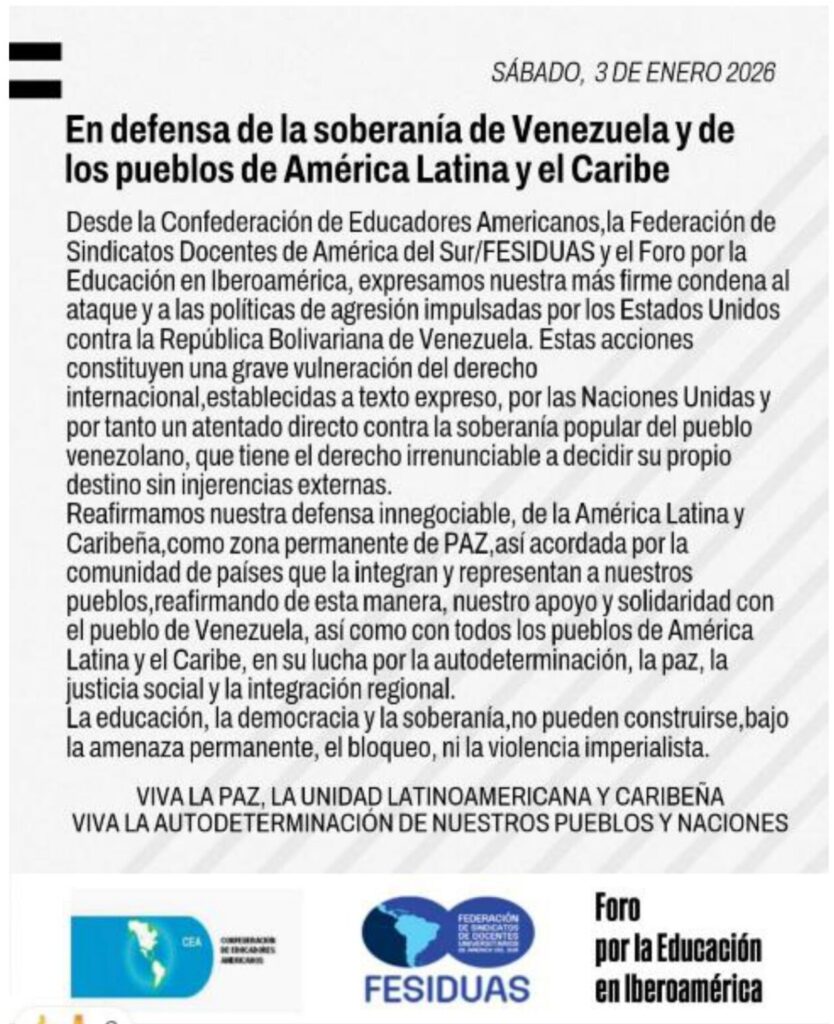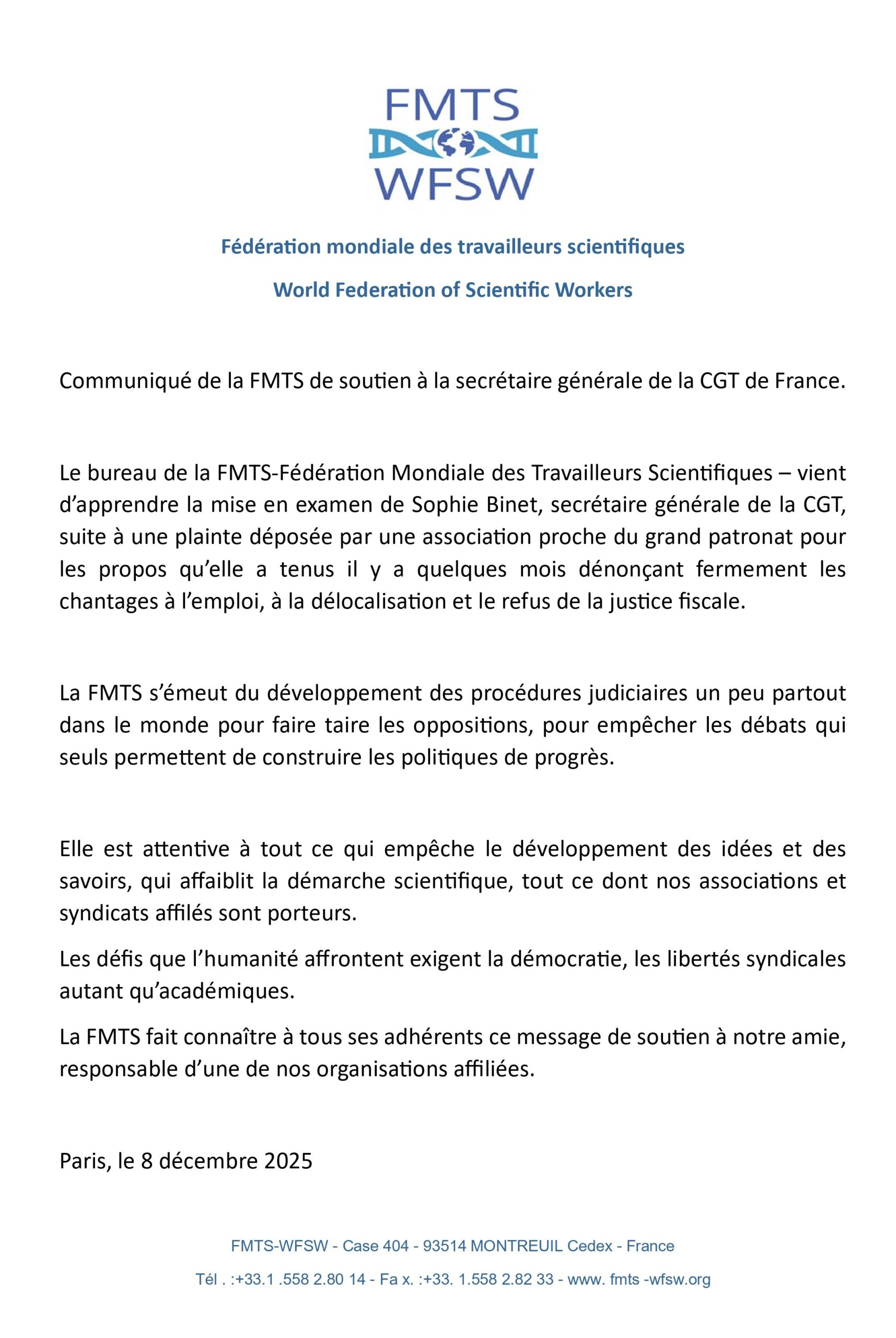Greece : an unacceptable shock treatment
Call of the French trade unions of the World Federation of Scientfic Workers
« Bread, education, freedom », the slogan of the student rebellion at the Athens Polytechnical School in November 1973 against the military junta, is now repeated by Greek demonstrators.
Subjected to blackmail by the Troika (European Commission, International Monetary Fund, European Central Bank) since 2010, the successive Greek governments have multiplied austerity plans. As of 2010 the IMF considered the restructuring of the public debt, but the heads of state and government of the Euro zone were opposed. Two years later, in the spring of 2012, a restructuring took place : Greece was on the brink of cessation of payments. Indeed, in the meantime the debt had skyrocketed from 130% (1) of the GDP to 170% (2), and the economy collapsed with a drop of 9% (3) of the GDP. The loans granted by the Troika as of 2010 on the condition of drastic austerity policies aggravated the crisis and in no way helped either to « save » the country or to pay back its debt. Since then the same orientation has been maintained, and the situation is worsening.
Beyond the figures, there is the social and human reality, the women, men and children, the rise in poverty, mental depression, suicides. Over one-fourth of the working population is unemployed. Salaries are cut, many employees have not been paid for months, or even a year. Schools are closing. Hospitals lack medicines. Sanitary conditions are worsening. Free clinics, founded and maintained thanks to devoted doctors, health personnel and citizens working as volunteers without pay,, cannot hide the sanitary peril. Thousands of government employees are losing their jobs. They are « laid off », considered as « superfluous ». Collective agreements are cancelled. Trade union rights are violated. Acts of violence are increasing, in particular against immigrants. Murders of political activists are committed.
The educational sector, which should prepare the future of Greece, is particularly hard hit. Moreover, tens of thousands of young university graduates and Greek students emigrate ; especially toward European countries in which the crisis is less acute, thus offering an influx of skilled labor which strengthens the host countries at the expense of Greece.
Higher learning and research in Greece had better resisted neoliberalism than in any other European country. Article 16 of the Constitution stipulates that « all Greeks are entitled to free education at all levels in state educational institutions ». Thanks to the strong commitment of personnel and students, the public university and its research institutes constituted great wealth for youth as well as for society as a whole, despite a chronic lack of resources. Knowledge, research and education, which were viewed as guarantees of democracy and development of society and the country, enjoyed the determined support of students and their families, who, with the personnel of the universities, blocked or slowed the submissoni of higher education and research to the interests of the market and businesses. But the crisis gave the Greek government the excuse for a forced neoliberal transformation of higher education and research.
In March 2013 the Greek government imposed the Athena « rationalization » plan of resource allocation, based on mergers and closings of departments, institutes, universities and higher technical schools, thereby reducing the presence of public services throughout the country. The Greek government thus created the conditions for a takeover of sectors of education by private interests, in flagrant violation of point 16.8 of the Greek constitution : « the creation of university level institutions by private persons is forbidden ». Even before March 2013 private institutions of a university level began to receive authorizations. In order to circumvent the law, the government argued, by a sleight of hand, that these establshments were in no way private universities because they were not named as such. In fact, these schools, which are of a purely commercial nature, attract young people who cannot enter university, luring them with promises of professional training and quick access to the job market. In reality, these schools only extort money from them and aggravate the despair of youth hungry for studies and diplomas.
The situation in Greece is steadily deteriorating, and European leaders are inflexibly pursuing their demand for an even greater austerity and the installation of the neoliberal model. As a result, higher education and research are victims of a new cut in resources, with the objective of reducing by 4% the number of students admitted to higher learning in 2014, and certain services cannot function due to cuts in the number of government employees. Today it is mainly administirative personnel that is affected. But new measures on the horizon are also aimed at specialized technical personnel and teachers. In this context, since the beginning of the school year 2013-2014 eight Greek universities have witnessed major strike movements. The University of Athens is closed, its president is subjected to disciplinary measures by the national Ministry of Education, which accuses him of keeping the university closed and thus « yielding » to the strike movement.
We declare our total support to our colleagues mobilized in Greece to defend their university, we we express our firm opposition to the austerity plans demanded by the heads of state and governments of the European Union, the European Central Bank, the European Commission and the International Monetary Fund.
We call on the European heads of state and governments, in particular the President of the Republic and the French Prime Minister, to carry out a change in policy soon with respect to Greece. European integration cannot be achieved on the basis of the breakdown of a member country of the Union. A policy in solidarity with Greece is a duty toward the women and men living in Greece, and it is a necessity to save the project on a Europe-wide scale.
The French trade unions of the World Federation of Scientific Workers (WFSW), SNCS-FSU, Snesup-FSU, SNTRS-CGT, UGICT-CGT.




